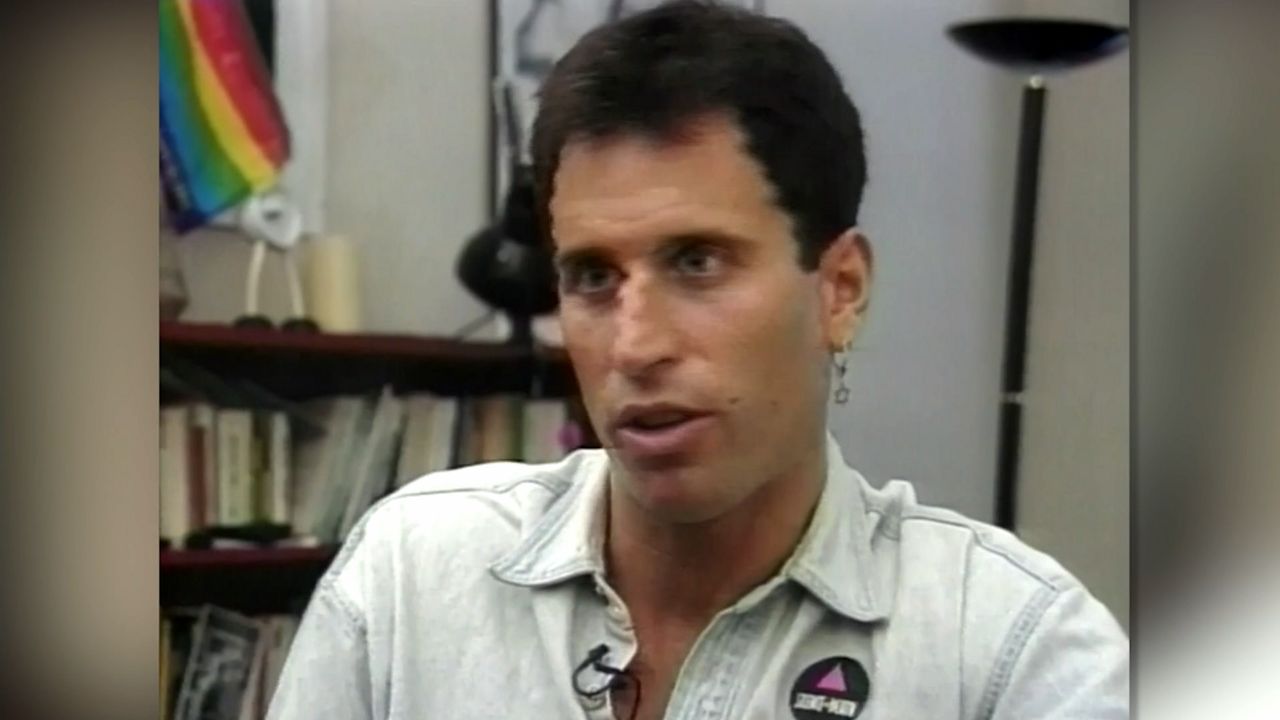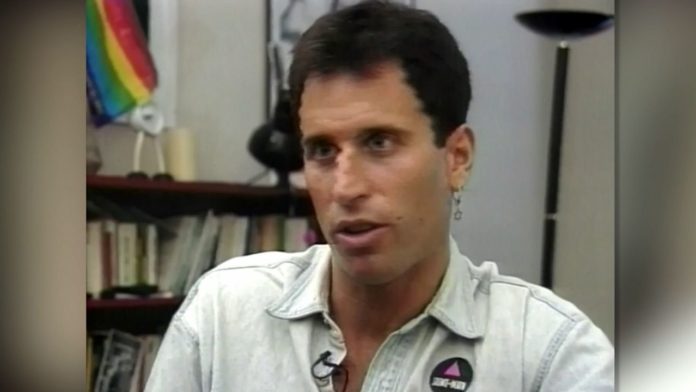
NEW YORK — Today, New York City students having access to free condoms in public high schools draws little controversy.
But it wasn’t always that way.
What You Need To Know
- Today, students in city schools learn about LGBTQ history and Pride Month
- In the 1990s, activists like Wayne Fischer — an HIV-positive and openly gay teacher — faced major backlash
- Fischer called for a comprehensive HIV curriculum and condom distribution to help students protect themselves from the virus
- He also pushed for an LGBTQ-inclusive curriculum, like the kind the city now embraces
“It is clear that condoms help stop the spread of HIV, period. So why would we take any measures to reduce the likelihood that somebody could receive a condom in a New York City public high school? It seems to me, anti-life,” Wayne Fischer told NY1 in the 1990s.
Fischer was a pioneering activist fighting for HIV education and the rights of gay and lesbian students — and the focus of a NY1 special feature called AIDS: A Journal of Hope. The weekly segment rand for more than three years, and documented his battles with the School Board — and with AIDS — until his death in 1997.
“Wayne goes before the Board of Ed, according to my records it’s September 26th, 1990, tells the Board of Ed that he’s a proud gay man, that he’s HIV-positive. And what he is seeking is a comprehensive AIDS curriculum,” Nina de Fels recalled.
De Fels taught with Fischer at Martin Luther King High School in Manhattan. Fischer had contracted HIV in the 1980s — at a time when it wasn’t widely known how to prevent the spread of the virus.
“He said, ‘But now we know. Now we know the science. And so now the fact that I can teach the kids, that they can use their own judgment as to how to be safe, can save lives.’ And he decided to devote the rest of his life to that,” De Fels recalled.
Fischer was no stranger to advocacy around the AIDS crisis — he met fellow teacher and his eventual roommate Alan Ettman through their work with ACT UP.
“People like Wayne were literally fighting for their lives at that point. And it just changed that whole dynamic. It’s not about being nice or being political, it was about saving people,” Ettman recalled.
Like Fischer, Ettman was an openly gay teacher who believed they needed to be honest with the high school students they taught.
“Despite what people wanted to believe, we knew most of them were exploring sex anyway. And the risks were really great to be unsafe at those times,” Ettman said.
Fischer advocated for condom distribution, an HIV curriculum, and more broadly for curriculum that educated students about gay and lesbian people and sought to prevent homophobia. He also did some of that educating himself — speaking to his own students about these experiences, and later, giving talks at schools around the city, some of which he filmed with the camcorder given to him for his NY1 segments.
For many students, Fischer was the first person they’d met who shared their HIV diagnosis.
“We’re all used to talking to students, but the idea of actually hearing somebody going through this — hearing somebody at this point in history, where we knew we were dealing with something historic, this new pandemic, that people were living it and it just was, I think, fascinating for a lot of them to just hear it,” Ettman said.
And Fischer put a face on the illness for those children.
“They say, well, I don’t want this man to die, he’s so likable,” Ettman recalled.
Queens City Councilman Daniel Dromm put it this way: “There is no better educational thing that Wayne could have done, or anybody could have done, than what he did.”
Dromm also came out as gay while teaching in the 1990s, and, like Fischer, advocated for the city to adopt a diversity curriculum called “Children of the Rainbow,” which included lessons on gay and lesbian families. It faced fierce backlash and at the time so controversial, it contributed to the ouster of the school’s chancellor.
The backlash then is a far cry from today’s LGBTQ lessons throughout the city.
“The struggles and the fights that he fought have now come into fruition,” Dromm, who has continued fighting for expanded LGBTQ curricula in city schools over his time in the council, said of Fischer.
De Fels, Fischer’s former colleague, still keeps a big binder full of his speeches and interviews. She flips through to find a letter where Fischer mused on how he’d like to be remembered after his death.
“He said, ‘I want my students to remember that I listened to them, that I love them, and that I truly cared,'” she read.
Fischer is being remembered now, nearly a quarter century after his death, at a time when the values he fought for have been embraced.
“And I think that’s really his legacy — that those changes are happening in the department of education,” Dromm said.
Wayne Fischer died at the age of 39.







